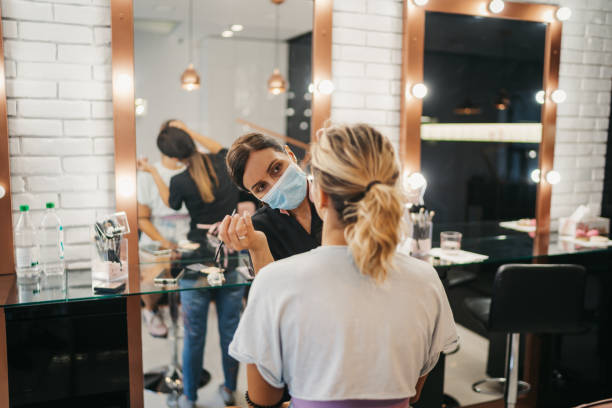Beauty products accentuate, enhance or alter people’s appearances. Eye makeup can give your eyes a dramatic look or soften the face. It’s used to make the eyes appear bigger, smaller, brighter or even sparkling. But one thing you need to know is that if you’re not careful, eye makeup can be harmful to your eyes.
Eye Problems Associated with Eye Makeup
Here are some of the issues commonly associated with the use of eye makeup:
- Allergic Reactions
Certain eye makeup products could trigger swelling in the eyes, irritation, redness or infection.
- Conjunctivitis
A lot of makeup products contain preservatives to keep bacteria from growing. However, in some products, bacterial growth can still take place and this leads to infection usually conjunctivitis (pink eye).
- Cornea Scratch
Your cornea could get damaged when applying mascara or eyeliner. It could also get scratched when you use a brush or pencil and in some cases the infection is severe.
Eye Make Up Considerations
Applying eyeliner too close to your eye could be harmful since the particles from the eyeliner may seep into the eyes. This is especially true for those wearing contacts. The residue from the particle buildup can cause irritation, blurred vision and even infection. Eye shadow is generally safe, but you need to check the ingredients list as some contain parabens, aluminum, coal tar, formaldehyde, talc, BHA (butylated hydroxyanisole), arsenic, beryllium, cadmium, sodium lauryl sulfate, lead and others. These substances are harmful to the eyes and your overall health.
Dos and Don’ts
Eye makeup can enhance your face and look, so there’s no reason to avoid it. Just be sure to take extra care when putting eye makeup to protect your eyes. Here are some things to remember:
1. Don’t put eye makeup in a moving vehicle. Your eyeliner brush or mascara wand could end up scratching your cornea during sudden stops.
2. Don’t use old makeup. Eyelashes have bacteria so when a mascara wand comes into contact with it, contamination will occur over time. Be sure to check the makeup label and throw out products after 3-4 months of use.
3. Don’t wear makeup in an infected area. The skin needs to be fully healed before you put makeup over or around it.
4. Do use clean eye makeup applicators. Wash or replace sponges and brushes frequently.
5. Do remove eye makeup at the end of the day. Before getting ready for bed, make sure to remove all traces of makeup to prevent irritation or infection.
6. Do replace eye makeup if you get an infection: It’s important to replace your eye makeup products if you get an infection to prevent bacteria from spreading.
If you’re wondering whether eye makeup products can affect vision, the answer is that although it’s entirely possible, the chances of it happening is very low. But in order to avoid putting yourself at risk, just remember to always be careful when applying makeup and keep your tools and products clean
If you wear contacts, it’s possible for eye makeup to get into them and ruin the lens. So make sure you put your contacts in prior to using eye makeup. You also need to keep your hands and lenses sterile when doing so.
To better care for your eyes, always get a comprehensive eye exam annually. You can request for a Pearle Vision Eye Exam so that a qualified doctor can evaluate your eyes to rule out any potential issues.
